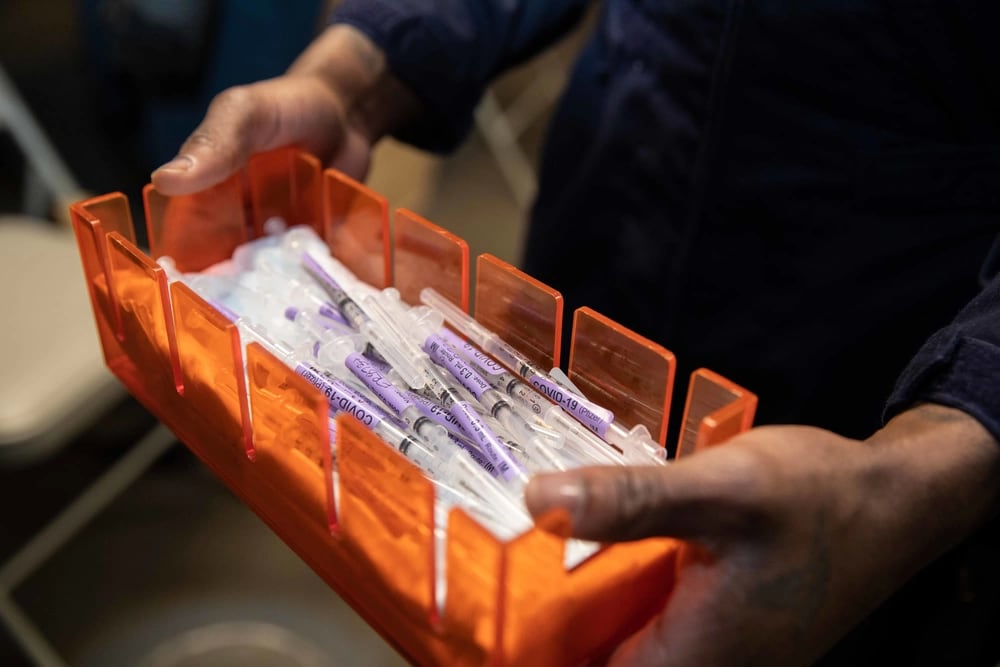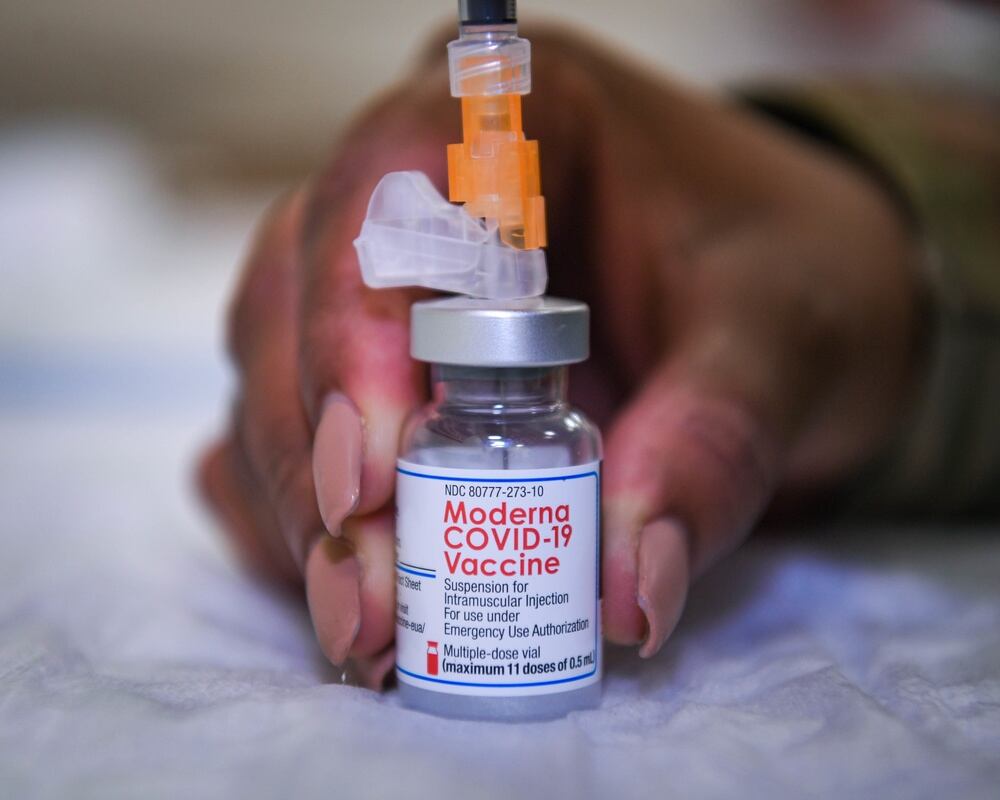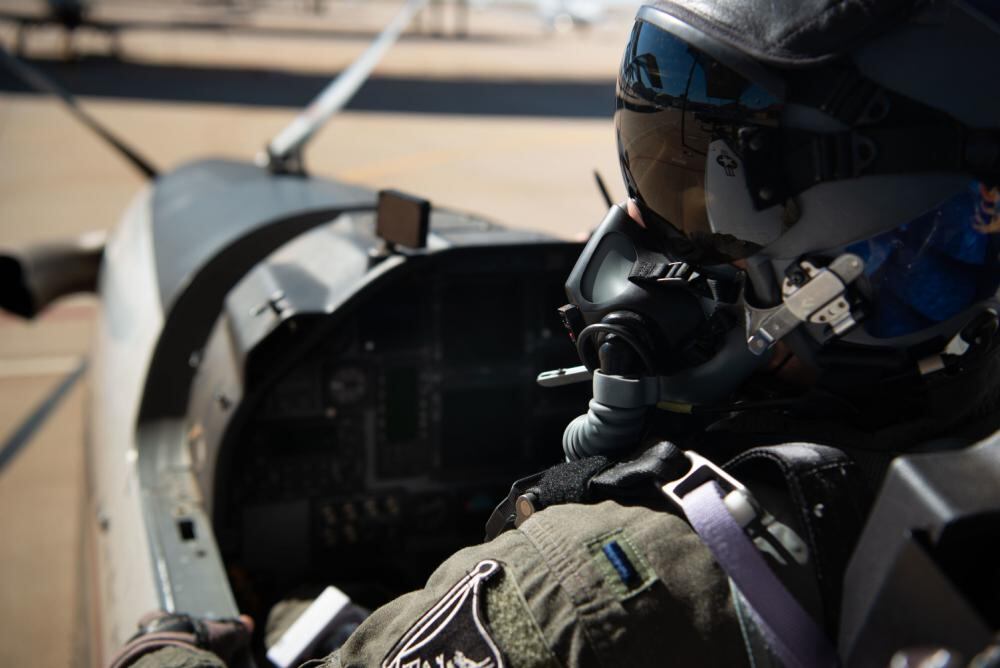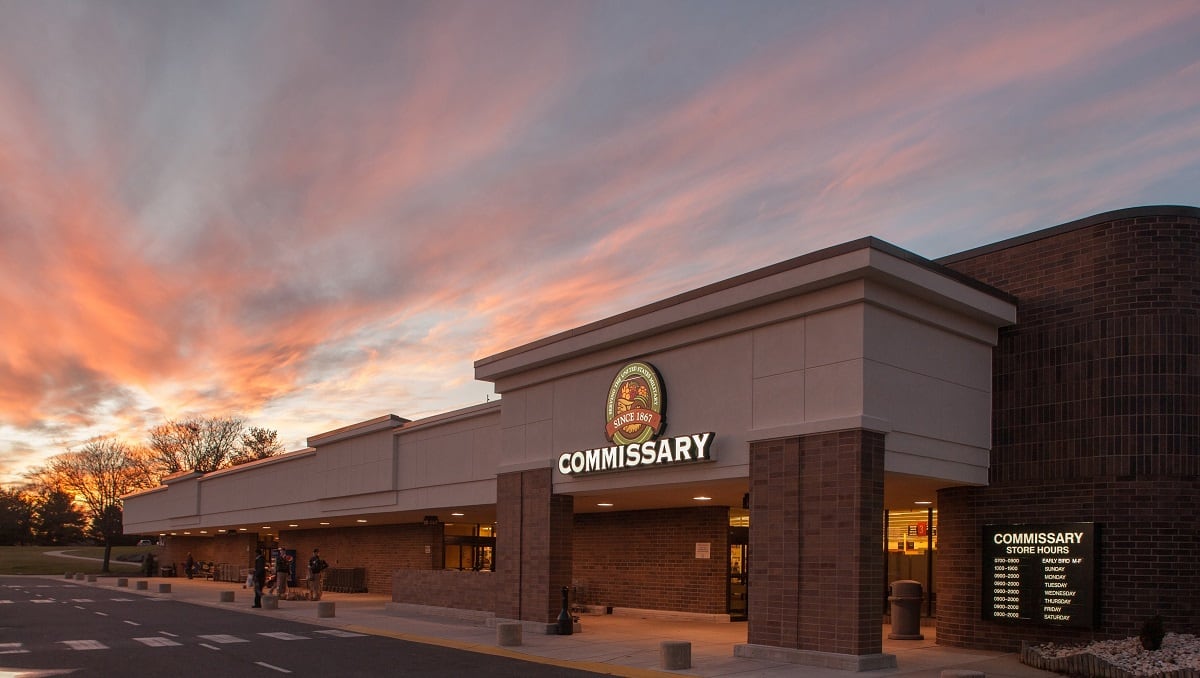The Air Force is allowing unvaccinated instructor pilots to return to the air after barring them from flight this summer, the service confirmed Oct. 28.
Maj. Gen. Phillip Stewart, the head of 19th Air Force, said Oct. 25 that it is “in the best interest of the Air Force” for instructors to resume their regular in-flight duties until further notice, according to a memo obtained by Air Force Times.
Nineteenth Air Force is a subunit of Air Education and Training Command that oversees the pilot training pipeline. Its restriction lasted just over two months.
Aryn Lockhart, a spokesperson for the organization, said the move would bolster military readiness but did not offer further details.
Stewart plans to revisit his decision once an ongoing class-action lawsuit challenging the vaccine mandate is resolved. The case, Hunter Doster, et al v. Air Force Secretary Frank Kendall, is heading toward a trial in U.S. District Court in Ohio.
In July, a federal judge issued an injunction that stops the Air Force from punishing or separating anyone who filed a request to be exempted from the vaccine mandate on religious grounds. The Air Force had kicked out more than 830 airmen and guardians who refused vaccination as of July 11, the last time it updated that number.
As of July 12, the Air Force had denied about 6,800 initial religious waiver requests and 3,600 appeals, and has not ruled on nearly 3,500 more cases. In contrast, 135 airmen and guardians had secured religious exemptions.
The service had approved more than 1,000 medical and administrative exemptions as of Oct. 18.
About 10,000 airmen and guardians are part of the class-action suit that argues the military is unfairly forcing people to receive a vaccine, which they object to on religious grounds, or lose their job.
The group includes anyone in the active duty Air Force and Space Force, Air Force Reserve, Air National Guard, U.S. Air Force Academy and Air Force Reserve Officer Training Corps who have asked for a religious exemption to the vaccine since Sept. 1, 2021, showed a sincere religious belief opposing the jab, and whose requests were denied or are not yet settled.
RELATED

Stewart noted that the injunction didn’t reverse his decision to stop instructors from flying. Still, he said, he felt it would be better to get pilots back in the air while the lawsuit is in limbo.
While instructors can return to doing their jobs as usual, training for unvaccinated students will remain on hold.
“In order to maximize readiness, training will be prioritized for student pilots who have received the vaccine,” Lockhart said.
Service spokespeople have repeatedly told Air Force Times — both before and after the Aug. 19 order to ground unvaccinated instructors — that vaccine refusal hasn’t slowed pilot training.
Air Education and Training Command hasn’t answered how many new pilots it graduated in fiscal 2022, which ended Sept. 30. The service typically aims to train around 1,500 new pilots annually but has fallen short in recent years.
RELATED

Nearly 12,000 airmen and Space Force guardians across the active duty force, Air National Guard and Air Force Reserve remain unvaccinated against COVID-19. They comprise 2.4% of about 497,000 total uniformed Air Force and Space Force members.
The Air Force has declined to answer repeated requests for the number of unvaccinated instructor pilots.
Most service members who refuse the shots say they oppose any connection to fetal cell lines or tissues that were derived from aborted fetuses years ago.
Pfizer and Moderna’s mRNA products used cells replicated from a fetus aborted in the 1970s to make sure the vaccines worked in human cells. The fetal cells were not used to produce either vaccine.
Johnson & Johnson uses cells replicated from a fetus aborted in 1985 to produce its vaccine, but those cells are filtered out from the final product.
RELATED

Other vaccines that claim not to have remote ties to abortion practices, like India-made Covaxin and another made by the American company Novavax, are available now as well.
The federal Centers for Disease Control and Prevention continues to encourage Americans to get fully vaccinated with one of the four vaccines authorized for use in the U.S.
“COVID-19 vaccines available in the United States are effective at protecting people from getting seriously ill, being hospitalized and dying,” the CDC says. “As with other vaccine-preventable diseases, you are protected best from COVID-19 when you stay up to date with the recommended vaccinations, including … boosters.”
More than 1 million Americans have died from coronavirus since the global pandemic began in December 2019.
Rachel Cohen is the editor of Air Force Times. She joined the publication as its senior reporter in March 2021. Her work has appeared in the Washington Post, the Frederick News-Post (Md.), Air and Space Forces Magazine, Inside Defense, Inside Health Policy and elsewhere.





